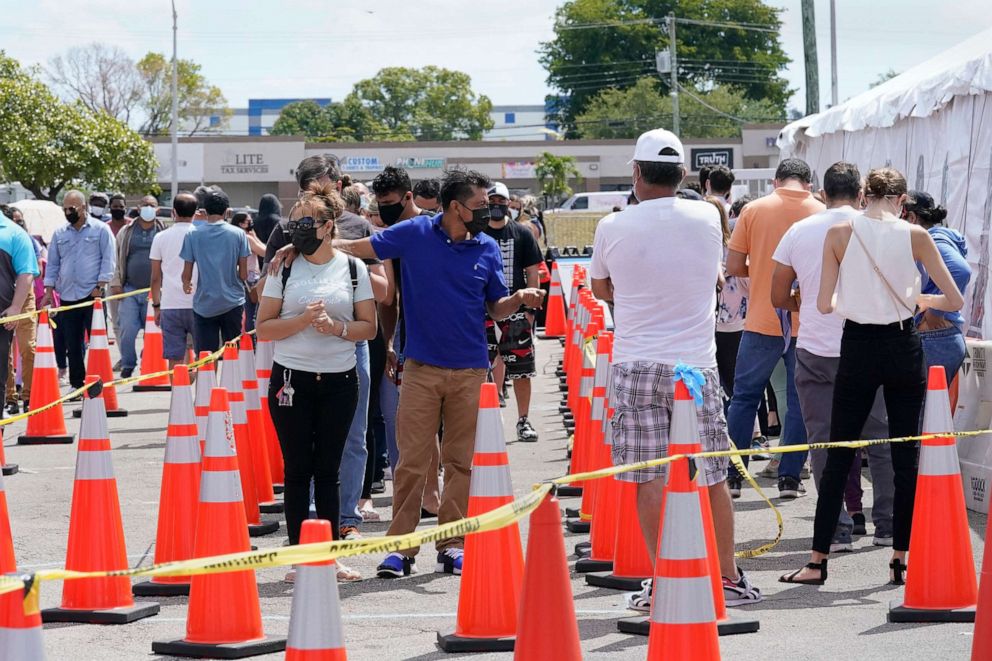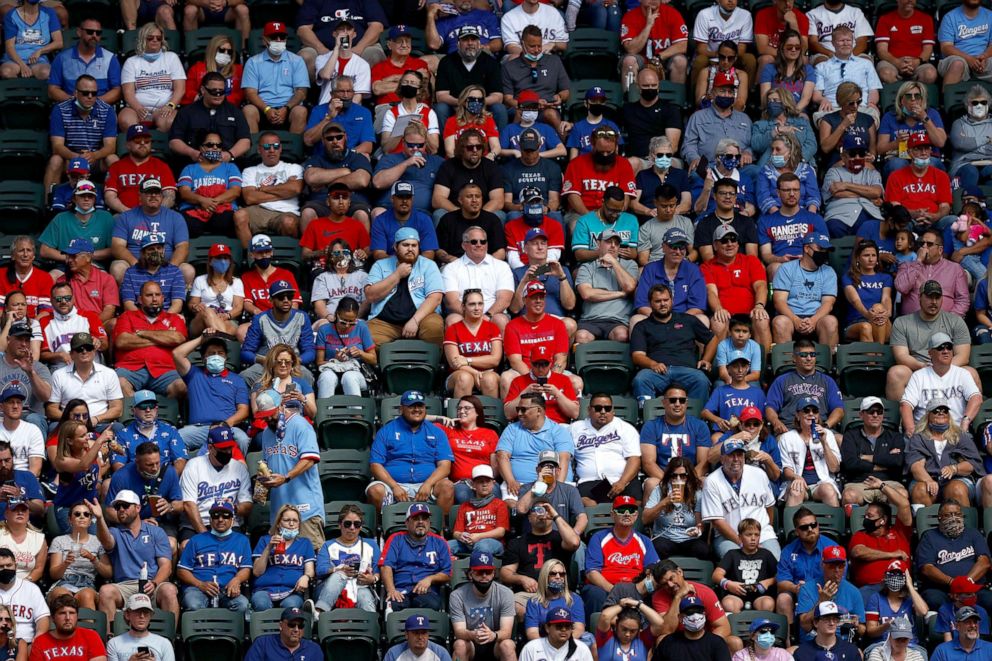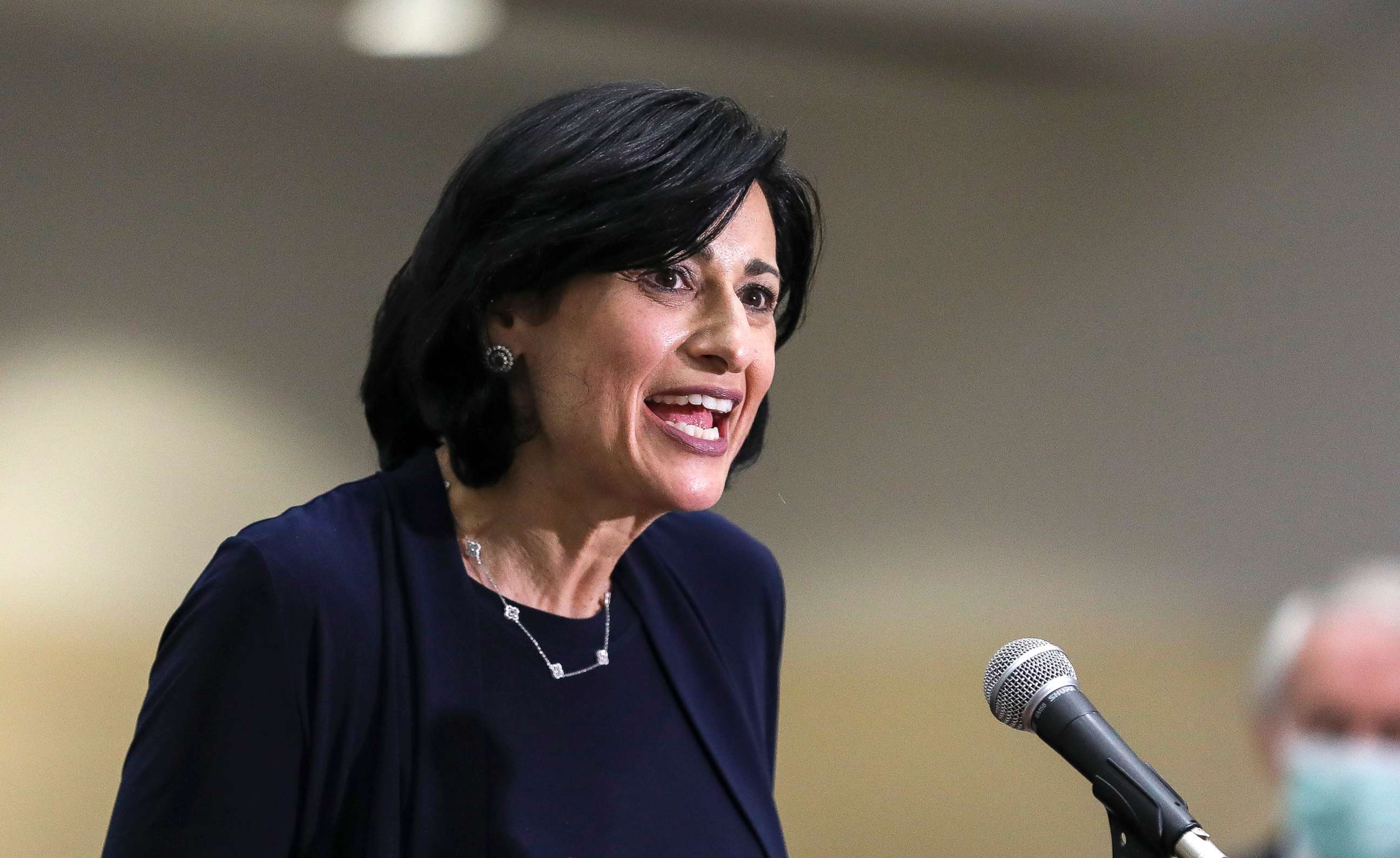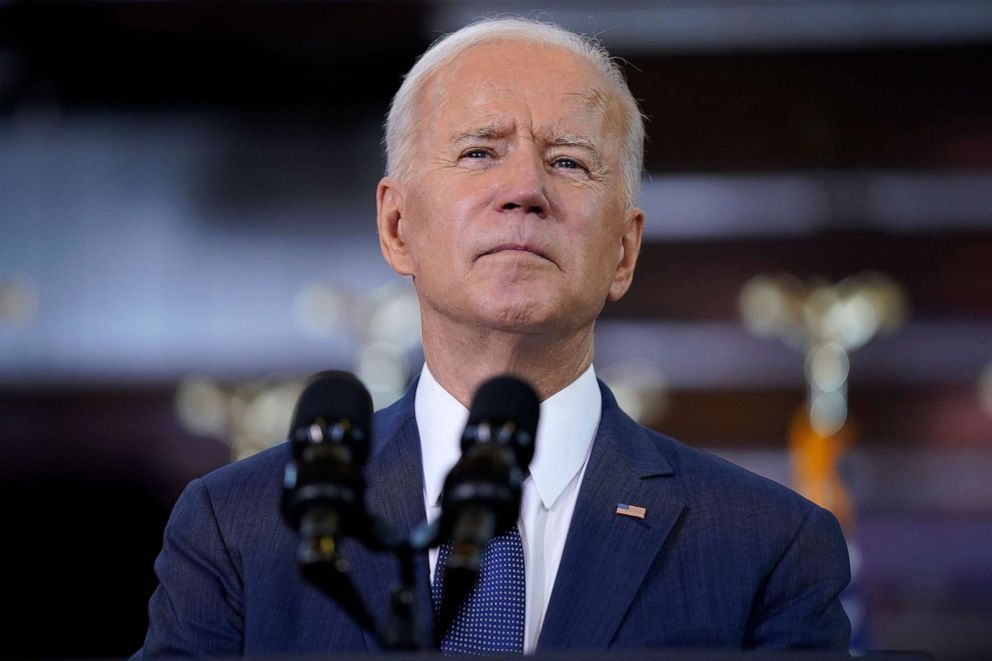Biden to call for states to make all Americans eligible for vaccine by April 19 amid 'concern' over increasing COVID cases
The president faces increasing cases as his warnings fall on deaf ears.
President Joe Biden on Tuesday will call for states and cities to allow all Americans to be eligible to receive a COVID-19 vaccination by April 19, two weeks before the May 1 deadline he had previously set, according to a White House official.
Last week, the president said he expected 90% of Americans to be eligible by April 19. The White House on Tuesday did not confirm, though, whether it had gained assurances from several states that had yet to announce they were opening up eligibility for all by then, although an official said the federal government likely would not seek to mandate the change.
But even as Biden plans to tout the accelerated vaccine timeline, his administration has struggled with balancing messages about progress speeding up vaccinations with warnings that the race against virus variants taking hold is far from being won.

The president planned to speak Tuesday about how some 150 million shots have been administered within his first 75 days in office with a record 4 million reported in one day over the weekend, the White House official confirmed in a development first reported by CNN.
Still, the administration’s head of the Centers for Disease Control and Prevention, Dr. Rochelle Walensky, last week said she had a "recurring feeling" of "impending doom" as Americans risked letting down their guard too early -- driving COVID-19 cases upward.
Walensky said Monday that the United States has faced four straight weeks of the number of cases rising across the country, and most recently, greater hospitalizations. The worsening situation was due, in part, to the disease mutating into more highly transmissible variants, she said.
As the U.S. ramps up vaccinations to counter the spread, Biden planned to travel on Tuesday to a vaccination site at Virginia Theological Seminary, in Alexandria, Virginia, just outside Washington, according to the White House.

The stop comes on the heels of a push by the Biden administration to enlist faith leaders in the effort to promote vaccinations. White evangelical Christians in particular make up one major group getting vaccinated at lower rates than others.
The White House declined to say whether the president's trip to nearby Virginia was intended to target faith communities.
Biden's announcements Tuesday put him ahead of deadlines he has set for himself, including his initial goal of 100 million shots in his first 100 days in office, which he recently doubled to 200 million. But even so, top administration officials say that reaching herd immunity, when enough of the population is vaccinated to quash the spread of COVID-19, remains far off.
Balancing optimism with caution, government scientists have in recent days described a race between vaccinating people and the virus spreading at higher rates as it mutates in the unvaccinated population.

As of Monday, nearly one in four American adults had been fully vaccinated, and more than 40% had received at least one dose of a COVID-19 vaccine, according to the Biden administration.
Administration officials have toed a fine line between warning states and other jurisdictions to not loosen COVID-19 restrictions too quickly while at the same time giving vaccinated people hope of a return to normalcy.
A senior adviser to the White House's COVID-19 task force, Andy Slavitt, said Monday the United States was "headed in the right direction" but that we're "not there yet."
When Biden announced on March 29 that "at least 90% of all adults in this country will be eligible to be vaccinated by April the 19th," he also called for a return to mask mandates, warned against "reckless behavior" and said it was "a very bad thing" that "people are letting up on precautions."
The warnings from Washington have fallen on deaf ears in many places, though.

On Monday night, the Texas Rangers baseball team reopened to full capacity -- packing nearly 40,000 people into a stadium in Arlington, Texas.
Walensky again warned Monday of "continued concerning data trends," saying the federal government was "watching these increasing case counts with concern."
And Dr. Anthony Fauci, Biden's chief medical adviser on COVID-19, said that the warm weather drawing people outside -- traveling and meeting in person to a larger degree -- will not blunt the spread on its own.
"You might remember a year ago, or a little bit more than a year ago when we were looking for the summer to rescue us from surges, it was in fact the opposite," Fauci, the director of the National Institute of Allergy and Infectious Diseases, said Monday. "We saw some substantial surges in the summer."
"I don't think we should even think about relying on the weather to bail us out of anything we're in right now," he said.




